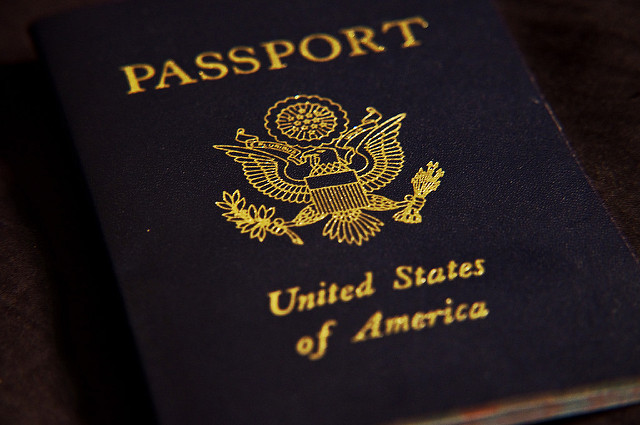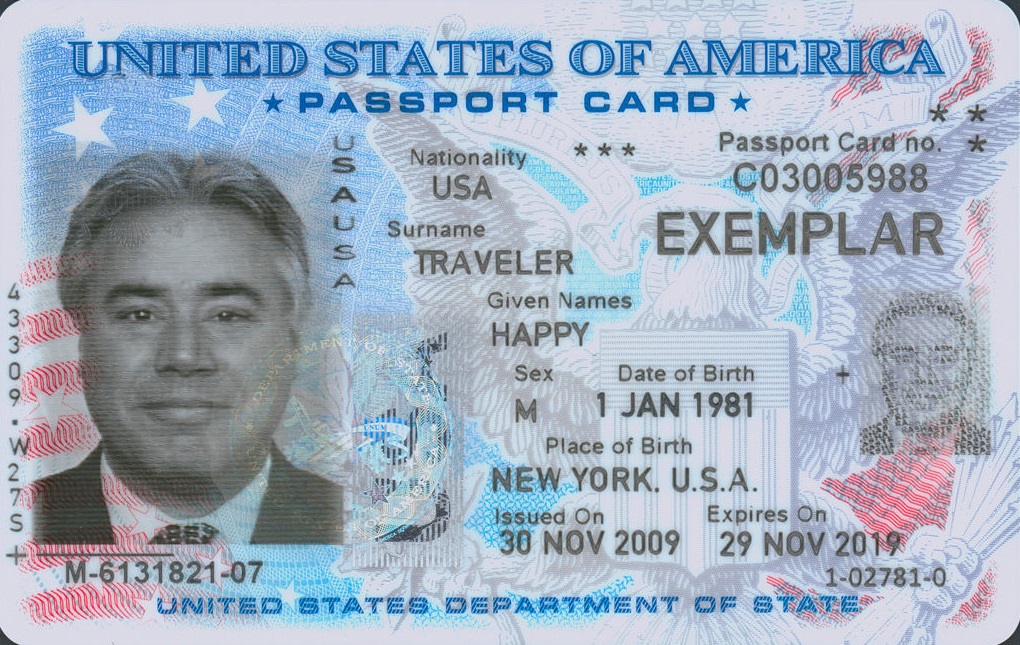Difference Between a Passport Book and Passport Card
U.S. citizens looking to travel abroad will need to obtain a passport. Along with allowing for international travel, passports can be used to prove your identity and citizenship, especially when you need multiple forms of identification. Depending on your budget and travel plans, you can choose between a passport card or book.

Passport Book
A passport book is a common source of identification for many travelers. It comes with many blank pages to be stamped at customs.
Passport Card
A passport card is another form of identification, and allows for limited travel. It is a single page and is not stamped or marked while going through customs.

Differences Between a Passport Book and Card
Travel Restrictions for Passport book and card
Book: A passport book has no inherent travel restrictions. If you obtain a passport book, you can travel internationally freely. You are not restricted by travel type, and may use your passport to travel by land, air, or sea. Travel restrictions may still apply if there is a travel warning or ban on your destination country, however.
Card: Passport cards are designed only for land and sea crossing between the U.S. and Canada, Mexico, the Caribbean, and Bermuda. A passport card can be used on cruises that loop through the Caribbean, for example. Problems may arise if you are forced to fly or disembark at an international location where you legally need a passport book to return through.
Size of Passport book and card
Book: A passport book is larger than a card at 5×3.5 inches. A standard passport book comes with 28 pages, but you can also request an extra-large 52-page book. If you run out of pages before your book expires, you can request to add more pages (or order a new book altogether).
Card: A passport card is a one-page identifier, and is wallet-sized.
Cost for Passport book and card
Book: Currently, the first-time application fee for a passport book for an adult is $130. For a minor under 16, the first-time fee is $105. The renewal fee for adults is $110. Books are more expensive than cards.
Card: Currently, the first-time application fee for a passport card for an adult is $55. The first-time fee for a minor under 16 is $40. The renewal fee for adults is $30. Cards are cheaper than books.
Combined application: If you want both a passport book and card, you can request them at the same time for a fee of $165.
Identification Uses for Passport book and card
Book: A non-expired passport book can be used as valid proof of identity and citizenship. A passport book can also be used as your ID for domestic air travel.
Card: As with a passport book, a non-expired passport card can serve as your proof of identity and citizenship. You can also use it as your ID for domestic air travel.
Time before Expiration for Passport book and card
Book: If you are 16 or older, your passport book is good for 10 years. Younger children will need to renew their passport after 5 years.
Card: Like the book, passport cards are good for 10 years if you are 16 or older. Minors under 16 will need to renew their passport every 5 years.
Overall Convenience for Passport book and card
Book: Passport books are generally more convenient than passport cards, because they allow you to travel internationally without any worry of restrictions. However, they are more expensive to both apply for and renew, and are bulkier. Passport books and cards are equally useful as a source of identification.
Card: Passport cards are much more limited than books if you are planning to do extensive traveling. Even if you only want to travel to Canada, Mexico, and the Caribbean, you will not be able to use your card for air travel, and you will face difficulties returning to the U.S. if you must pass through international customs. However, if you can be reasonably sure you will only travel by land or sea, or if you only need your passport as another form of identification, then a passport card is cheaper and easier to carry than a book.
Table of Differences between Passport Books and Cards

Summary of Passport book and card
- U.S. passports can be requested either as a book or a card.
- Both the book and the card are equally valid as proof of identity and citizenship, and can be used for domestic air travel.
- Passport books are larger than cards and come with many pages for customs stamps.
- Passport books allow you to travel internationally with no restriction on air travel. Passport cards only allow you to make land and sea crossing to Canada, Mexico, the Caribbean, and Bermuda.
- Passport books are more expensive than cards, both to apply for and to renew. Cards and books are valid for the same length of time. They can also be requested together.
- Differences Between Google Fi and T-Mobile - August 18, 2019
- Differences Between LED Bulbs and LED Fixtures - June 1, 2019
- Differences Between McAfee and Kaspersky - April 22, 2019
Search DifferenceBetween.net :
Leave a Response
References :
[0]Bureau of Consular Affairs. “Passport Card.” U.S. Department of State. “https://travel.state.gov/content/travel/en/passports/apply-renew-passport/card.html.”
[1]Gina Kramer. “U.S. Passport Card Vs. Book.” Cruise Critic. September 21, 2017. “https://www.cruisecritic.com/articles.cfm?ID=1913.”
[2]Ed Perkins. “Passport Book vs. Passport Card: Which Do I Need?” SmarterTravel. October 25, 2016. “https://www.smartertravel.com/2016/10/25/passport-book-vs-passport-card/.”
[3]“What’s the difference between a passport book and a passport card?” U.S. Passport Service Guide. “https://www.us-passport-service-guide.com/whats-the-difference-between-a-passport-book-and-a-passport-card.html.”
[4]Image credit: https://commons.wikimedia.org/wiki/File:Passport_card.jpg#/media/File:Passport_card.jpg
[5]Image credit: https://www.flickr.com/photos/swimparallel/3461522090
